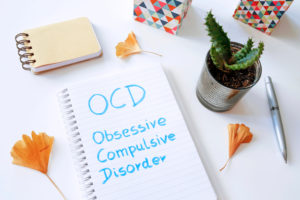Choosing to have cognitive behavioural therapy (CBT) is a big decision, but one that will have a positive impact on your mental wellbeing. It’s important to attend all of your sessions and participate fully, but it’s also good to use one or more techniques between those sessions to make as effective as possible.
At Newcastle Psychologist & Counselling our aim is to support clients to improve their mental health, to give you a better quality of life no matter what you’re facing, and to equip them with the tools you need to help yourself every day. Below, we’ve come up with suggestions to help you do just that. Remember, a lot of these activities will also lower your risk of developing dementia later in life.
Track Your Thoughts and Feelings Between Sessions
We encourage you to keep a note of how you’re feeling in between your Cognitive-Behavioural Therapy (CBT) sessions with your therapist. Note down any thoughts you have or anything you do that makes you feel better or worse.
If you try a technique, write that down and include a comment on how you felt afterwards. This information will help your CBT therapist shape sessions around the issues or successes you’ve identified, so you can work to improve your situation.
Exercise

You may not feel up to exercising, and perhaps the gym isn’t your thing. However, even gentle exercise, such as walking, is good for you as a supplement to your Cognitive-Behavioural Therapy (CBT) sessions. The Mental Health Foundation UK has a lot of helpful advice on this, and they recommend that adults should do between 75 and 150 minutes of exercise per week.
Anything that raises your heart rate and makes you breathe harder is ideal. This even includes housework, carrying shopping and climbing stairs, so as you go about your day, you’re adding to your exercise time. Whatever you do, make sure you enjoy it and can incorporate it into your life.
Exercise lowers anxiety and improves self-esteem. Short bursts of activity are enough to make you feel more positive and energised. And it’s good for your physical health too.
It will also help you to sleep better, sharpen your thinking, give you more resilience when facing challenges, and can lower the likelihood of having a relapse into depression or anxiety.
Learn a New Skill
 Don’t worry, we’re not suggesting you go back to university to study for a formal qualification, although you can certainly do this if you like. However, the focus here is on easy ways to improve and maintain your mental wellness, so look for things that will fit in with your lifestyle and your Cognitive-Behavioural Therapy (CBT) sessions.
Don’t worry, we’re not suggesting you go back to university to study for a formal qualification, although you can certainly do this if you like. However, the focus here is on easy ways to improve and maintain your mental wellness, so look for things that will fit in with your lifestyle and your Cognitive-Behavioural Therapy (CBT) sessions.
There are all sorts of things you can learn or develop. You can choose something that will help you at work or at home, or pick something you’ve always wanted to try but haven’t got around to yet. You might learn to cook, get into DIY, learn a language or a musical instrument, or develop practical skills to better understand new technologies.
Learning something new gives you a sense of purpose, particularly if you have set targets you want to reach, which gives a positive feeling of achievement. You’ll get more from life and again, cope better with stress.
Connect More with Those Around You
 Learning a new skill, as outlined above, is one way you can connect with people and build and strengthen relationships. You may meet new, like-minded people who will share your hobby or interest, and build friendships that have nothing to do with your everyday life (which may be connected to your mental health problems).
Learning a new skill, as outlined above, is one way you can connect with people and build and strengthen relationships. You may meet new, like-minded people who will share your hobby or interest, and build friendships that have nothing to do with your everyday life (which may be connected to your mental health problems).
Make time to spend with your family, and if you have children, work on quality interactions where you play games or chat about your day, rather than them being distracted by electronics.
Get in touch with friends you haven’t seen for a while and arrange to meet up for coffee. If they’re not local, chatting over Skype or FaceTime is just as valuable in helping you to reconnect and catch up.
Connecting with others isn’t just about focusing on people we already know. Volunteering to visit the elderly, helping out at a community centre or school, or participate in a fundraising effort will all boost your self-esteem and wellness, and has the added advantage of giving back to the local community.
Mindfulness and Meditation
 Mindfulness meditation is a technique that can be used to increasing present moment awareness. The aim is to bring inner peace and a sense of relaxation by focusing your mind and thinking deeply. Combined with your Cognitive-Behavioural Therapy (CBT) sessions with us in Newcastle, you should start to see a reduction in feelings of anxiety, depression, anger and other negative emotions.
Mindfulness meditation is a technique that can be used to increasing present moment awareness. The aim is to bring inner peace and a sense of relaxation by focusing your mind and thinking deeply. Combined with your Cognitive-Behavioural Therapy (CBT) sessions with us in Newcastle, you should start to see a reduction in feelings of anxiety, depression, anger and other negative emotions.
Mindfulness helps you to be more aware of feelings and thoughts and manage them effectively rather than being overwhelmed, and you’re encouraged to pay attention to what’s going on in the moment. These are techniques that CBT will also help you to develop, so you have strategies in place to deal with anxiety and unwelcome thoughts.
By consciously focusing on the world around you, you’ll start to enjoy things you’ve been taking for granted. And that increasing awareness means you’ll be able to think objectively about stress or negativity and deal with it calmly.
For Further Information
There are a number of ways and a variety of problems that Cognitive-Behavioural Therapy (CBT) is proven to help (such as depression, anxiety, trauma, anger and sleep).
For further information or to book in with one of our Specialist CBT Therapists in Newcastle, contact us at Newcastle Psychologist & Counselling using the box below.




